Phipps Stories
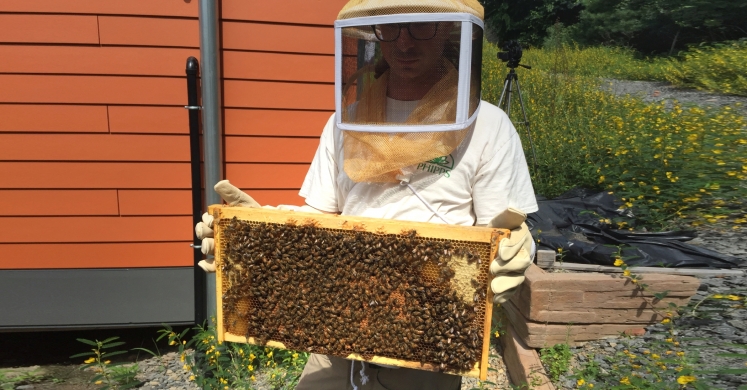
Our New Observational Beehive Is Here!
You know we love pollinators here at Phipps, and we've just taken our dedication to the next level! With the help of apoidea apiary, we installed an observational beehive in the Nature Lab at Phipps that allows kids to safely get nose to antenna with the bees. We hope to use the observational beehive to teach guests about the importance of pollinators and the plight that they face.
The observational beehive will be open to the public Saturdays from 11 a.m. – 3 p.m. No advance registration is required; just drop in and a graduate of our Learning for a Greener Future high school internship will show you the beehive and the new building's amazing features.
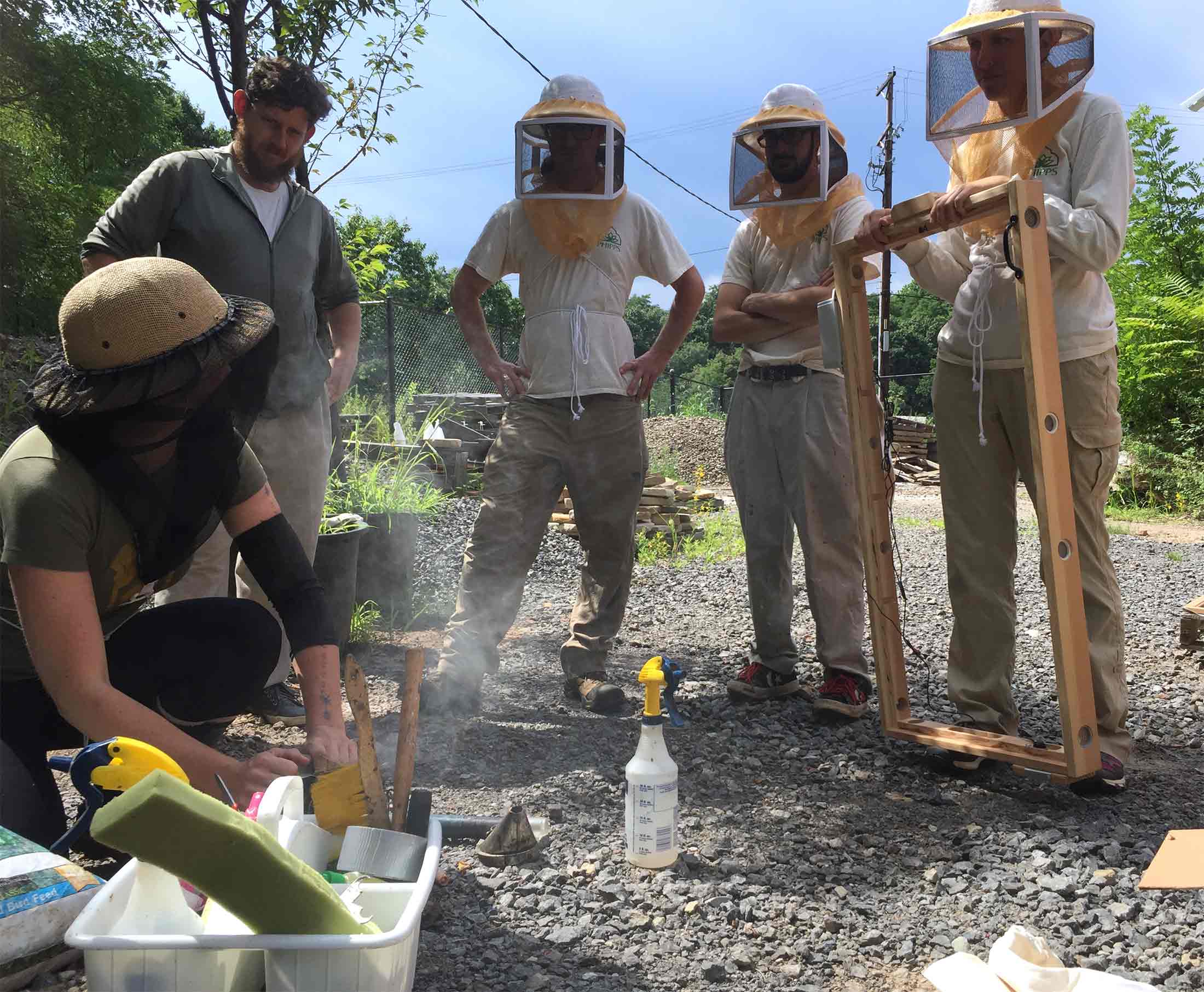
Each season, between 30 – 40 percent of all bee colonies die, leaving their populations, as well as humans, plants and animals, in a dire situation. Bees pollinate 70 – 90 percent of the crops that supply 90 percent of the world’s food. Without bees, the nation’s food supply would be dramatically affected. Even meat and milk products are threatened by the loss of bees because cows eat alfalfa, which is pollinated by these insects. Various studies, including a 2016 study by the EPA, have shown that a major cause of this decline in bees is the use of a chemical called neonicotinoids that is used in pesticides by agribusinesses, landscapers and gardeners.
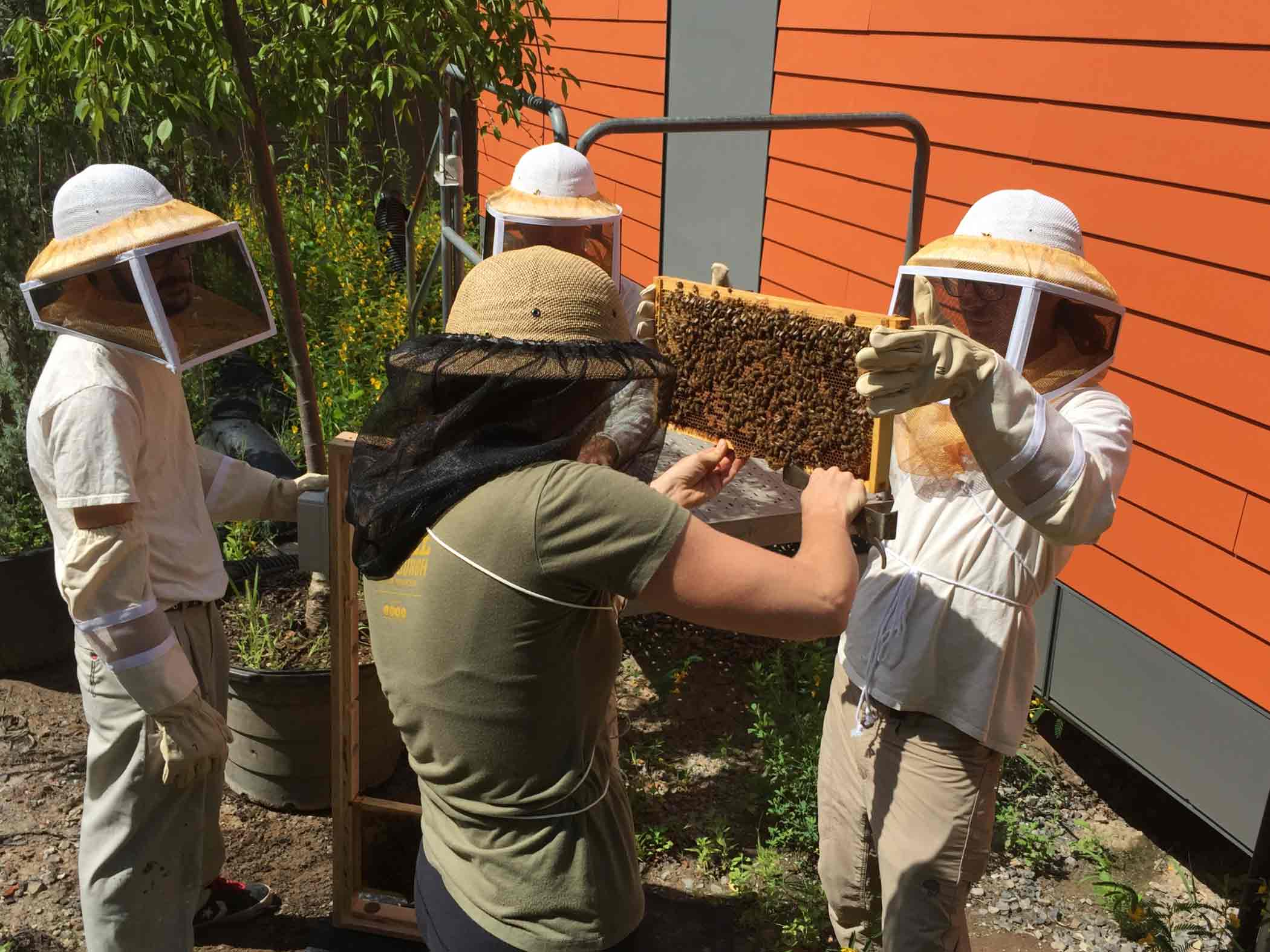
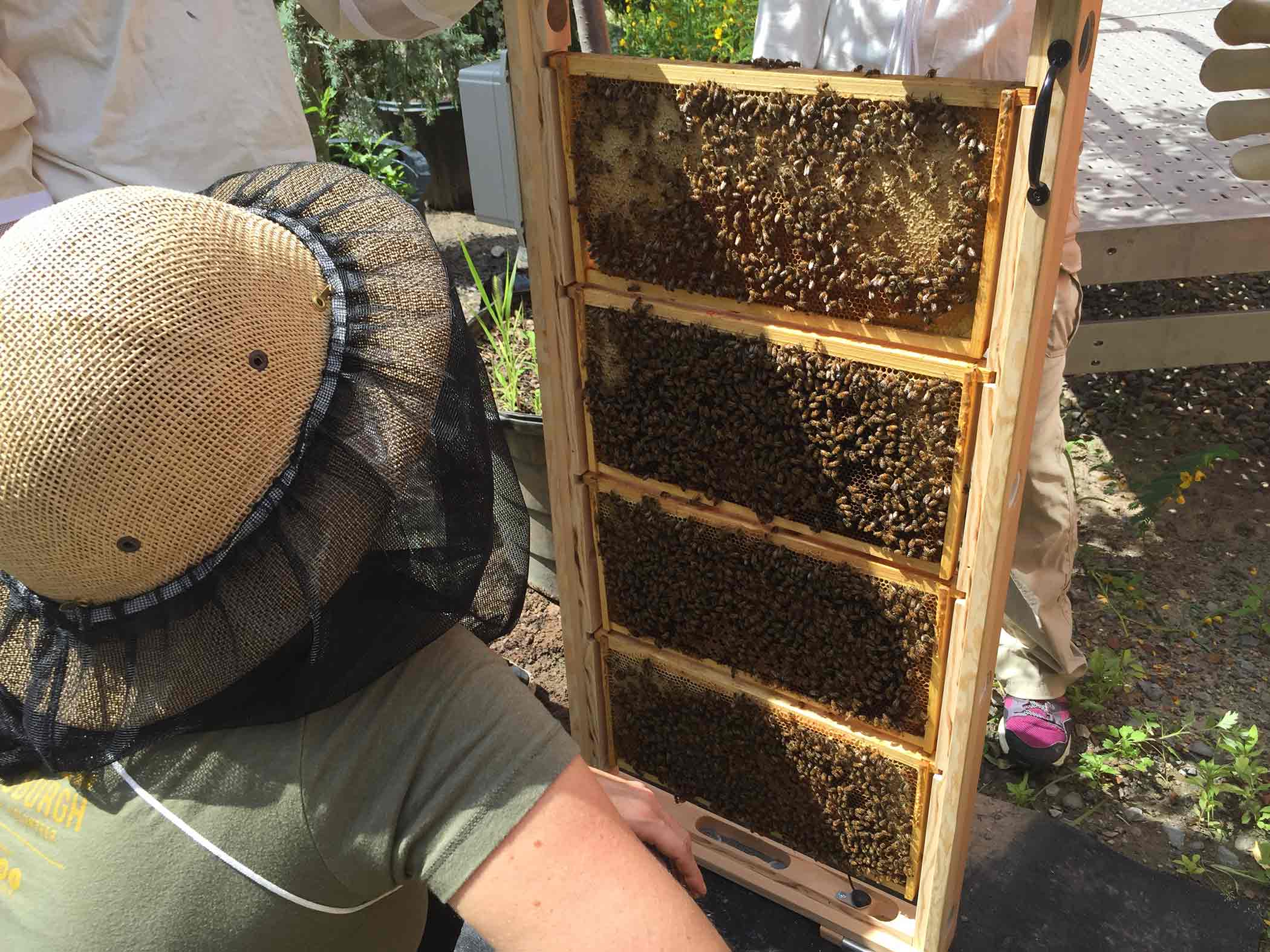
The new observational bee hive comes after a summer of efforts by PennEnvironment Research & Policy Center to educate tens of thousands of people in the region about the problem and what they can do. In the Nature Lab, Phipps hopes to complement Penn Environment’s programs by educating guests about these important pollinators. Adult education classes, events and youth programs will be offered on- and off-site.
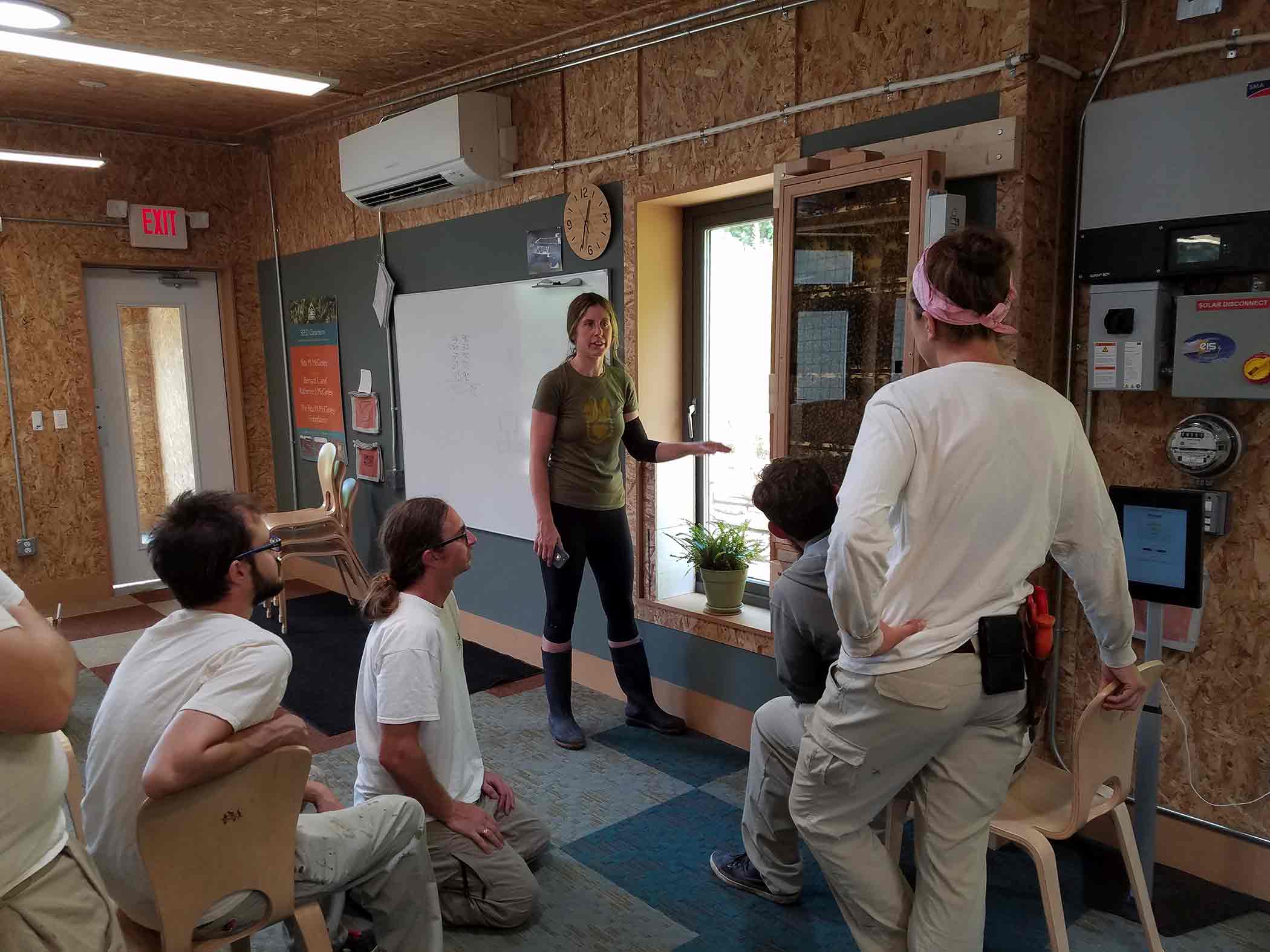
Christina Neumann, principal beekeeper at apoidea apiary, finds educating the public to be just as important as raising the bees. She played an important role in the installation of this beehive and will continue to be instrumental to its well-being and uses. Neumann is a trained architect from Carnegie Mellon University with a focus in sustainable design. Her experiences in green architectural design inspired her to forge an ever deepening relationship with bee species. She also is a part-time horticulture staff member at Phipps.
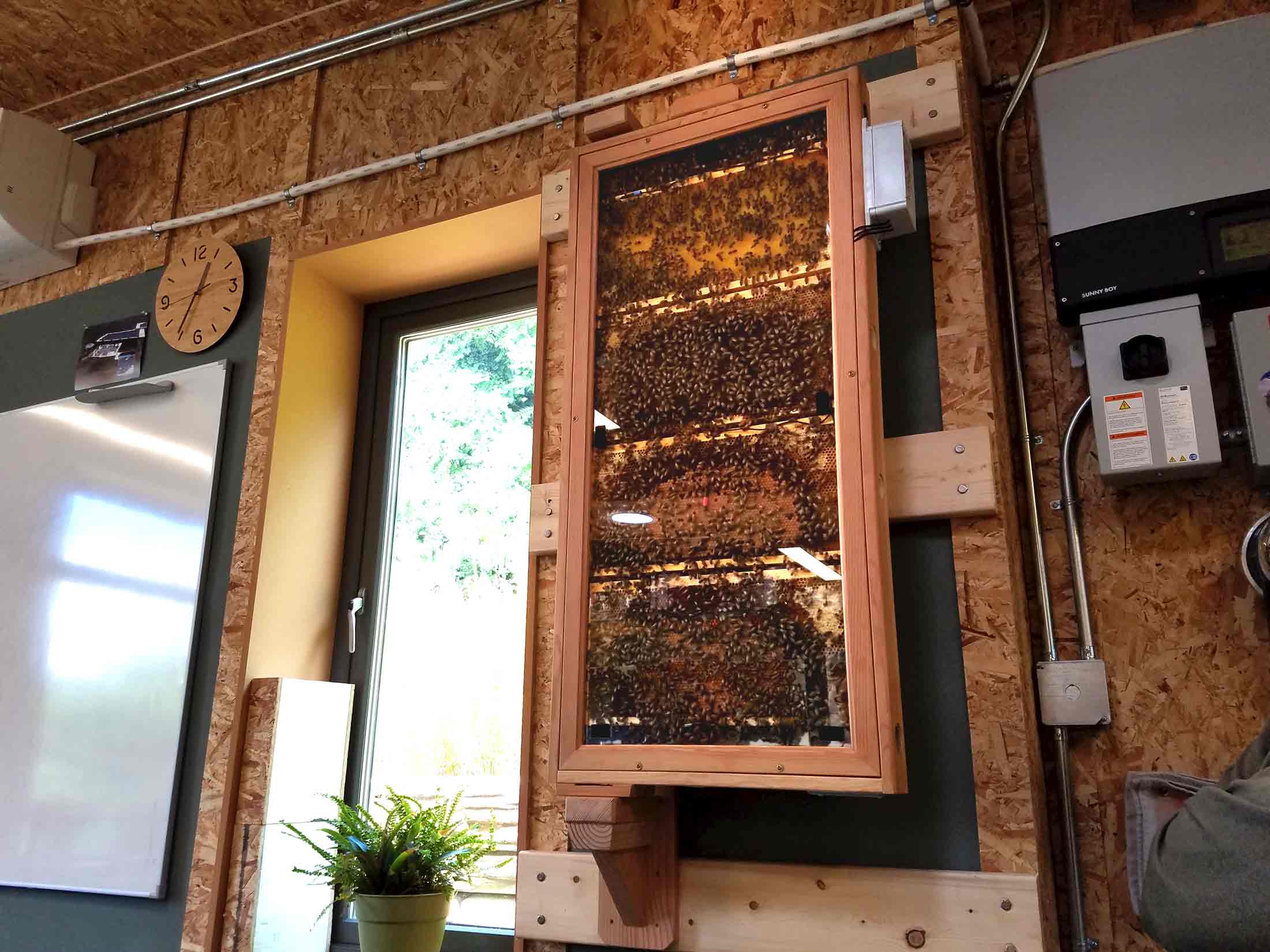
An equally important role of this beehive will be to collect data for research. As the bees buzz to and from the hive, Phipps staff will record observations, such as what plants are currently blooming in the Center for Sustainable Landscapes Environs and Rooftop Edible Garden, how much time bees spend on each plant, what times of day they are most active and what types of pollen they are collecting. Over an extended period of time, Phipps staff and Neumann will be able to use this information to see trends in climate, learn where the best spots are to place particular plants, and even contribute to research that other scientists are doing nationwide.

